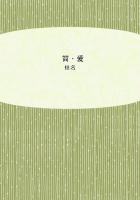Luther was just the man for his work. Sprung from the people, poor, popular, fervent; educated amid privations, religious by nature, yet with exuberant animal spirits; dogmatic, boisterous, intrepid, with a great insight into realities; practical, untiring, learned, generally cheerful and hopeful; emancipated from the terrors of the Middle Ages through great struggles; progressive in his spirit, lofty in his character, earnest in his piety, believing in the future and in God,--such was the great leader of this emancipating movement. He was not so learned as Erasmus, nor so logical as Calvin, nor so scholarly as Melancthon, nor so broad as Cranmer. He was not a polished man; he was often offensively rude and brusque, and lavish of epithets. Nor was he what we call a modest and humble man, he was intellectually proud, disdainful, and sometimes, when irritated, abusive. None of his pictures represent him as a refined-looking man, scarcely intellectual, but coarse and sensual rather, as Socrates seemed to the Athenians. But with these defects and drawbacks he had just such traits and gifts as fitted him to lead a great popular movement,--bold, audacious, with deep convictions and rapid intellectual processes; prompt, decided, kind-hearted, generous, brave; in sympathy with the people, eloquent, Herculean in energies, with an amazing power of work;electrical in his smile and in his words, and always ready for contingencies. Had he been more polished, more of a gentleman, more fastidious, more scrupulous, more ascetic, more modest, he would have shrunk from his tasks; he would have lost the elasticity of his mind, he would have been discouraged. Even Saint Augustine, a broader and more catholic man than Luther, could not have done his work. He was a sort of converted Mirabeau. He loved the storms of battle; he impersonated revolutionary ideas. But he was a man of thought, as well as of action.
Luther's origin was of the humblest. Born in Eisleben, Nov. 10, 1483, the son of a poor peasant, his childhood was spent in penury.
He was religious from a boy. He was religious when he sang hymns for a living, from house to house, before the people of Mansfield while at school there, and also at the schools of Magdeburg and Eisenach, where he still earned his bread by his voice. His devotional character and his music gained for him a friend who helped him through his studies, till at the age of eighteen he entered the University at Erfurt, where he distinguished himself in the classics and the Mediaeval philosophy. And here his religious meditations led him to enter the Augustinian monastery: he entered that strict retreat, as others did, to lead a religious life. The great question of all time pressed upon his mind with peculiar force, "What shall a man give in exchange for his soul?" And it shows that religious life in Germany still burned in many a heart, in spite of the corruptions of the Church, that a young man like Luther should seek the shades of monastic seclusion, for meditation and study. He was a monk, like other monks; but it seems he had religious doubts and fears more than ordinary monks. At first he conformed to the customary ways of men seeking salvation. He walked in the beaten road, like Saint Dominic and Saint Francis; he accepted the great ideas of the Middle Ages, which he was afterwards to repudiate,--he was not beyond them, or greater than they were, at first; he fasted like monks, and tormented his body with austerities, as they did from the time of Benedict, he sang in the choir from early morn, and practised the usual severities. But his doubts and fears remained. He did not, like other monks, find peace and consolation; he did not become seraphic, like Saint Francis, or Bonaventura, or Loyola. Perhaps his nature repelled asceticism; perhaps his inquiring and original mind wanted something better and surer to rest upon than the dreams and visions of a traditionary piety. Had he been satisfied with the ordinary mode of propitiating the Deity, he would never have emerged from his retreat.
To a scholar the monastery had great attractions, even in that age.
It was still invested with poetic associations and consecrated usages; it was indorsed by the venerable Fathers of the Church; it was favorable to study, and free from the noisy turmoil of the world. But with all these advantages Luther was miserable. He felt the agonies of an unforgiven soul in quest of peace with God;he could not get rid of them, they pursued him into the immensity of an intolerable night. He was in despair. What could austerities do for HIM? He hungered and thirsted after the truth, like Saint Augustine in Milan. He had no taste for philosophy, but he wanted the repose that philosophers pretended to teach. He was then too narrow to read Plato or Boethius. He was a self-tormented monk without relief; he suffered all that Saint Paul suffered at Tarsus. In some respects this monastic pietism resembled the pharisai** of Saul, in the schools of Tarsus,--a technical, rigid, and painful adherence to rules, fastings, stated prayers, and petty ritualisms, which, originally framed as aids to grace, by repetition lose their power; based on the enormous error that man may win heaven by external practices, in which, however, he can never perfect himself, though he were to live, like Simeon Stylites, on the top of a pillar for twenty years without once descending; an eternal unrest, because perfection cannot be attained; the most terrible slavery to which a man can be conscientiously doomed, verging into hypocrisy and fanaticism.
It was then that a kind and enlightened friend visited him, and recommended him to read the Bible. The Bible never has been a sealed book to monks; it was ever highly prized; no convent was without it: but it was read with the spectacles of the Middle Ages.














